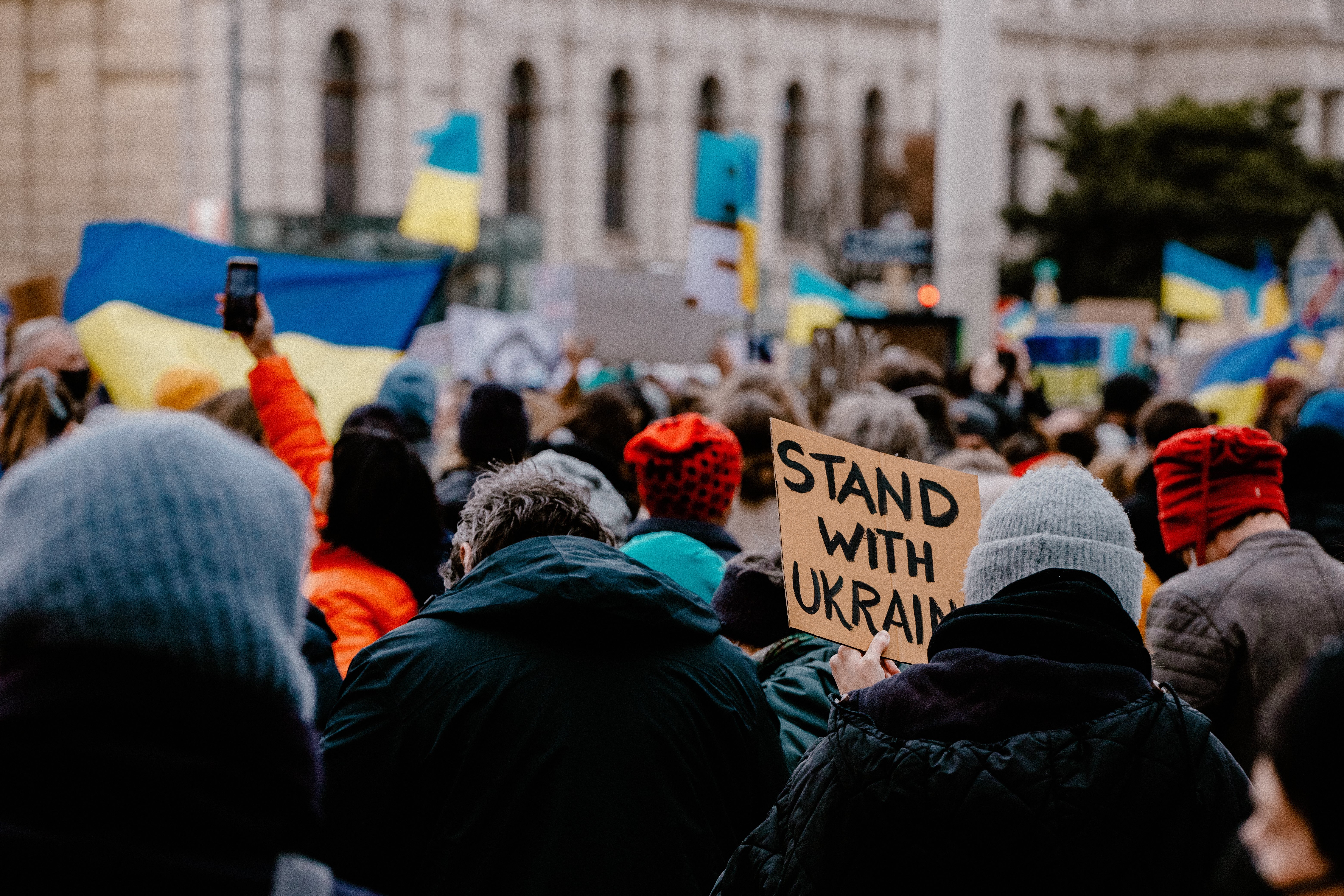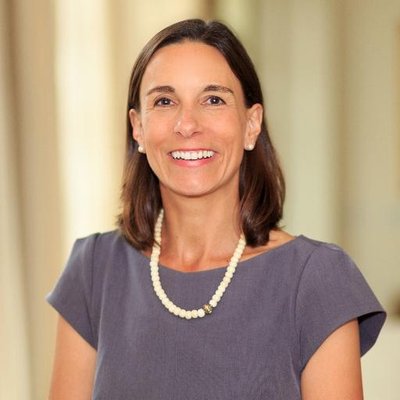The Russo-Ukrainian War After One Year: Building Peace With Justice
Written By Patricia Marquez, PhD

One of my favorite songs of all time is León Gieco’s pro-peace anthem: “Solo le pido a Dios... que la guerra no me sea indiferente” (I only ask God that I am never indifferent to war). The song was written by Giego during the Argentine military dictatorship which caused terrible suffering in the 1970s. It is impossible to forget Gieco’s imagery of war, made even more indelible because of his music, as a huge and destructive monster:
"Es un monstruo grande y pisa fuerte" (It is a huge monster that crushes)
"Toda la pobre inocencia de la gente" (All the poor innocence of people)
This month marks one year since the invasion of Ukraine by Russia which has brought forward this monster of war. And with its arrival, we have seen the destruction of the lives of millions of innocent Ukrainians and dramatic changes to the lives of many others beyond the country’s borders. It has created another global crisis to which we cannot become indifferent.
This long year of war makes clear the very real complexities of resolving violent conflicts and building peace with justice, which in the case of Ukraine entails supporting the Ukrainians in their resistance against foreign invasion and armed violence. Yet, given what has already occurred, we must assess cautiously the pathways for ending the war and creating just peace in Ukraine. Important questions remain unanswered: What does victory by Ukraine truly require? What consequences does defeat or even the appearance of defeat have for Russia?
Despite all the questions and uncertainties surrounding the war in Ukraine, getting to a just peace should remain a collective global goal. Albeit one in which different parties have different roles to play. More than anything we should all pay attention to Gieco’s request: “Solo le pido a Dios que el futuro no me sea indiferente” (I only ask God that I am not indifferent to the future).
The past year reinforces the fact there cannot be real peace without real justice. As this war is in an increasingly lethal phase, we must consider that ending it may still require more fighting. But these realities however do not preclude the benefit of dialogue amongst the combatants, even within the context of ongoing combat. And we would hope that all countries assess with caution the positions they are taking in relation to this war, since it is abundantly clear we all have a stake in the outcome and the consequences of permanent major conflict would be catastrophic for our highly interwoven world.
The global community recently demonstrated what can be done to save millions of lives. The quick creation of COVID -19 vaccines spared humanity an even bigger tragedy and loss than what we experienced over more than two years. As many have pointed out, the vaccine was not an individual miracle but an invention made possible because of years of mRNA research and the commitment and willpower of many people to solve the situation. It was the result of vision and ongoing investment in research and innovation. The success, however, involved the engagement of all kinds of individuals and entities around the world, from the organizations that drove the distribution of vaccines to the millions of people who mobilized to get vaccinated. It took commitment and agency at all kinds of levels.
For us at the Kroc School, it is clear the same vision and investment in peacebuilding are required for us to address ongoing violence and emerging conflicts in the 21st century.
War in Ukraine is obviously a different situation from a pandemic. Achieving peace will not rely on a bioscience invention. Peace with justice will require complex strategies and multiple actions to be taken by a diverse group of people across the world – from the people in Ukraine to the United States to India and Germany. What is similar is that major crises call for engagement in solving a terrible situation and addressing its consequences. This can be as small as sponsoring a refugee family or keeping an issue alive on university campuses or asking more from our politicians and peace specialists.
As an institution dedicated to the education and promotion of peace, justice and conflict resolution, the Kroc School will continue to train more and more leaders in peacebuilding, justice, and social change with the goal of shaping more peaceful and just societies throughout the world. As global citizens, we will show how we continue to care by paying close attention and exercising our agency.
May we all ask our God or our conscience to never become indifferent to this war or other injustices to come.

About the Author
Patricia Marquez is the Dean of the Kroc School of Peace Studies at the University of San Diego.





